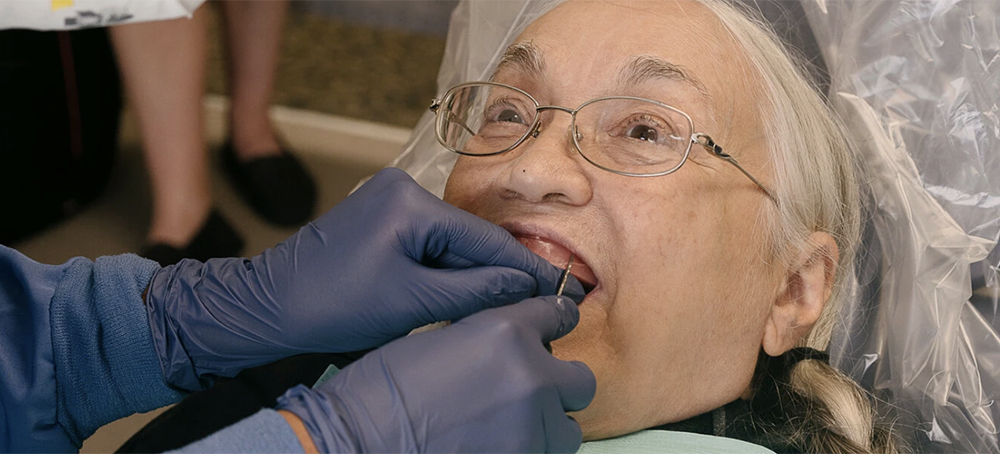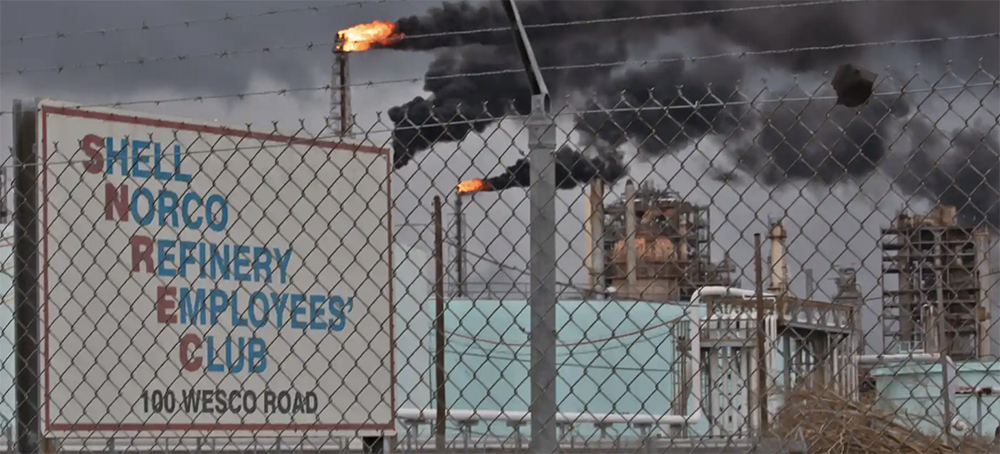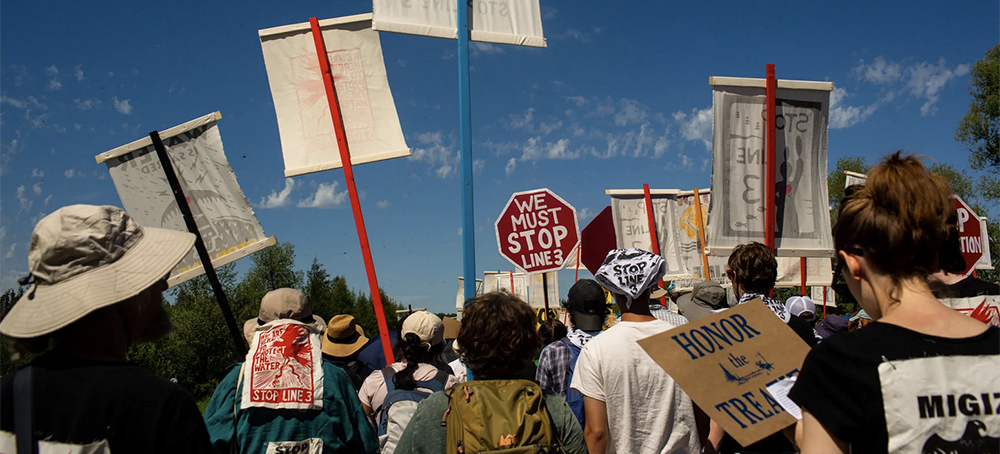RSN: Absolutely Worth Fighting For
I am proud to write to you today and ask for your support.
I am proud of our staff, our achievements and our commitment to making our country and our world better.
I am proud of our readership and the community we have built.
We are, “Reader Supported News”.
Give us a hand please.
Marc Ash
Founder, Reader Supported News
If you would prefer to send a check:
Reader Supported News
PO Box 2043 / Citrus Heights, CA 95611
Follow us on facebook and twitter!
Live on the homepage now!
Reader Supported News
Dealing with global warming is always going to be about the balance of power.
I’ll continue doing some of that as I transition to a free newsletter at Substack—but one reason I’m leaving the all-consuming labor of this column is to free up some time and energy for the next round of my own work. I’ve long had two identities, as a writer and an activist; for the past couple of years, the former has dominated—in part because the pandemic has made activism hard. And, in truth, part of me hoped that all those who had built movements in the past decade had done enough. Victories have been won, from Keystone XL to fracking bans to divestment to—one hopes—the infrastructure bill now making its tenuous way through Congress. Certainly, the Zeitgeist has been moved—the polling makes clear that even Americans, living in the center of well-funded climate denial, have decisively shifted toward concern about global warming.
But the science has also shifted. As Louisiana digs out and Lake Tahoe evacuates, it feels to me that, with each passing week, the pace of climate destruction increases. And so do researchers’ fears that we’ve underestimated the vulnerability of the planet. Already we’re seeing real disruption of the most basic forces on Earth: the jet stream, the Gulf Stream, the hydrological cycle. From regularly interviewing scientists, I know that their sense of our peril grows—especially the sense that we must act quickly, making enormous changes by decade’s end. And, at the same time, I sense the growing ability of the fossil-fuel industry and its friends in politics and finance to finesse the increasing public outrage. Just as, in 1990, the industry built an intricate architecture of climate denial that cost us three decades, now they’re erecting a similar buttress, constructed of something that is not quite denial but is just as dangerous. They imply that we have plenty of time, that they’re moving as fast as they can. They’re getting good at spreading the message that there’s as much danger in moving too fast as in delaying too long. If they succeed with this grotesque agenda, they’ll lock in such extravagantly high temperatures that I fear the damage will overwhelm our societies.
The only way I can think of to meet this challenge is with more mass organizing. Young people are now fully engaged and leading the way; we’re seeing remarkable activism in frontline and indigenous communities. But there’s a group that, I think, is not pulling its weight, and it’s a group I’m now a part of. Call us “experienced Americans”—the baby boomers and silent generations that make up a huge percentage of the population, own a remarkable share of its financial assets, and vote in large numbers. As a rule, people do become more conservative as they age, but it’s not an inviolable maxim—many of the people in these generations witnessed broad cultural and political change in their early years, and now, conscious of their kids and their grandkids, they may be emerging from the primes of their lives with the skills and the resources to help make big change again. And so some of us are planning an organization called Third Act, an effort to mobilize older Americans in defense of environmental sanity and economic and racial fairness. We need a working, equitable society, both because it will do less damage and because it will be better able to cope with the damage that’s no longer preventable. If you’re part of this demographic, I hope you’ll figure out a way to help with this new venture—or that you’ll join with existing efforts such as Elders Climate Action and Great Old Broads for Wilderness. In any event, much of my writing going forward will be more closely tied to that activism. Not that I’ll give up writing for The New Yorker—I’ve been proud to be in its pages since I started as a staff writer, at the age of twenty-one. It’s the best magazine there ever was (and my colleague Elizabeth Kolbert may be the single most elegant chronicler of our climate peril); to be numbered among its contributors is an enormous honor. Because you’ve subscribed to this newsletter, the magazine will kindly e-mail you commentaries that I write for the publication in the future. (To hear from The New Yorker more often, you can also sign up for The Daily newsletter.)
I do not, precisely, relish the prospect of another bout of organizing. Part of me has always thought it’s crazy that we have to build these movements: Why must we fight so hard, even go to jail, in order to get our leaders to take more seriously the clear and unequivocal warnings of scientists? But I’ve long accepted that we’re engaged in a fight, not an argument—and that the main way to counter the malign power of vested interest is to meet organized money with organized people. I’ve highlighted many brilliant people in this column; the best shot at giving their ideas a chance is to keep shifting the balance of power. And that, in the end, is the point of activism. I have no idea whether we’ll be successful, but we’ll try.
Passing the Mic
In a 2008 election, Mohamed Nasheed toppled the longtime strongman ruler of the Maldives. Nasheed’s governance of the archipelago, which stretches across the equator, included a sharp focus on the existential peril caused by climate change. (His cabinet members learned to scuba dive so that they could hold a meeting on one of the nation’s imperilled coral reefs.) Deposed in a coup, in 2012, he spent time in exile abroad, but returned in 2018 after the party that he’d founded won new elections. He’s currently serving as the speaker of the Majlis, or Parliament. The Maldives remains turbulent: Nasheed survived an assassination attempt, in May, when an I.E.D. stuffed with ball bearings exploded near his home. In the run-up to the global climate talks in Glasgow, in November, he has been pushing for debt restructuring or debt repudiation for what he calls the Climate Vulnerable Forum countries—an alliance of forty-eight developing countries heavily exposed to the effects of global warming—in order to free up funds to spend on climate resilience. The Maldives will be chairing the U.N. General Assembly for the next six months, perhaps allowing the nation to amplify this call. (Our conversation has been edited.)
Explain the logic of this idea, both moral and political.
When Climate Vulnerable Forum countries went into debt, they did not envisage such a sharp increase in climate-adaptation expenses. The Intergovernmental Panel on Climate Change was implying that substantial climate-change impacts were in the future, and would not affect the loan periods of the existing debt. Most C.V.F. countries spend more than twenty-five per cent of their annual budget for adaptation, and, with the new extreme weather that the I.P.C.C. report says is on the horizon, it is likely that adaptation spending will drastically increase. It is therefore paramount that the C.V.F. countries’ debt is restructured. Debt-restructured expenditure requirements for countries will create enough space in domestic budgets to increase their spending on adaptation, giving the instant ability to adapt to new extreme weather. Funds provided to C.V.F. countries without debt restructuring will go to the debt holders and not to the intended projects.
You were in Copenhagen when the developed nations promised a hundred billion dollars in annual climate aid by 2020. Is this a different way to get that money?
This is a pledge that has manifestly been broken. According to the Organization for Economic Coöperation and Development, the total amount provided and mobilized in 2018, 2017, and 2016 was $78.9 billion, $71.2 billion, and $58.6 billion, respectively. The missing twenty billion dollars is a breach of a promise that was made in front of the whole world, and it means that the developed countries are the defaulters—not us in the vulnerable developing countries. As Prime Minister Hasina [of Bangladesh] has stated, the high emitters have not kept their side of the bargain, therefore climate-vulnerable countries must change their position, too. With such a shortage of external funds, we have no choice but to shift resources from repaying debts to focussing on adaptation needs for survival in the face of escalating climate damage. Moreover, we simply cannot tolerate a situation where any provided funds for adaptation flow straight out of the country again in debt repayments.
How are you recovering from the assassination attempt? What’s your plan for the climate fight in the years ahead?
I received injuries from at least twenty-five pieces of shrapnel. I am healing well, though I still have some difficulty walking distances. I asked God to let me stay alive because I felt that my life’s work was not yet complete. We still have so much left to fight for, both in the democracy struggle and in terms of the survival of small island states like my own. I am also trying to put forward a positive vision for developing countries, in my capacity as ambassador with the Climate Vulnerable Forum. I call this positive vision “climate prosperity,” a vision of how the poorer nations can become prosperous as part of the transition to net zero. We can do better than merely surviving—we should aim to flourish.
Climate School
Many climate activists have been calling on President Biden to appoint a replacement for Jerome Powell as chairman of the Federal Reserve, on the ground that he hasn’t moved with sufficient vigor to fight climate change by reining in lending to the fossil-fuel industry. Writing in the Times, Neil Irwin argues that the most important thing the Fed can do is to maintain a prosperous economy, because people with jobs are more likely to care about global warming. But that seems like an argument that eats its tail: there are no jobs on a broken planet.
Speaking of economists: Stanford’s Ben Franta, in a landmark article in the journal Environmental Politics, uncovers extensive evidence that the fossil-fuel industry used economists on its payroll much as it used scientists—i.e., dishonestly.
Dealing with the climate crisis kicks off a thousand smaller battles. In this essay, Fred Bernstein writes that some architects have given up on designing buildings that produce less carbon and are instead insisting it’s “green” to simply build stouter structures that stand up to floods and storms. “Being green is about using less; being resilient is almost always about using more,” Bernstein writes. “Or as Eric Corey Freed, a California architect and the author of half a dozen books on green design, put it to me, ‘Green buildings seek to be efficient. Resilient buildings seek to be redundant.’ ”
The Kenyan tree planter Clifford Akwana has been forced out of Nairobi and to the countryside by the pandemic; he’s still working with young people to plant forests, and you can support his work here. Meanwhile, Fridays for Future—the youthful arm of the climate movement—is mounting a campaign to safely evacuate climate activists from Afghanistan.
The Liberal Democrats, usually the U.K.’s third party, have proposed a powerful new set of policies: new listings of fossil-fuel companies would be banned on the London Stock Exchange, and new bonds backing oil, coal, or gas exploration would no longer be issued in the city. Pension funds would have to divest from fossil fuels by 2035. “The reality is that no matter how much governments spend, it’s going to be totally dwarfed by the amounts banks, private equity and hedge funds invest every day,” the Party leader, Ed Davey, told the Guardian. “So if you’re going to really take on climate change you’ve got to get that private capital to switch from dirty into clean. And this is a fundamental role for Britain in global leadership on climate change.”
A remarkable investigation by HuffPost’s Dan Zegart found that a pipeline carrying carbon dioxide to inject into oil and gas wells along Mississippi’s Gulf Coast ruptured in February of 2020; the resulting leak of highly pressurized CO2 sickened dozens. Cars even stopped running, because the atmosphere suddenly lacked the oxygen required for combustion. The reporting highlights key questions around environmental justice. But it also makes clear what a bad idea it is to build out a huge network of pipes for “carbon sequestration,” a task undertaken mostly to allow the continued burning of coal and gas in power plants. It’s endlessly cheaper and safer just to build solar panels and wind turbines, unless you own a coal mine. Or unless you’re a Republican ideologue: note, for instance, last week’s call from Governor Pete Ricketts to build out one of these Rube Goldberg schemes for a coal-fired plant in Nebraska.
Rebecca Solnit patiently explains why you should worry a little more about your society’s carbon footprint than about your own. “Personal virtue is an eternally seductive goal in progressive movements, and the climate movement is no exception,” she writes. “People pop up all the time to boast of their domestic arrangements or chastise others for what they eat or how they get around. The very short counterargument is that individual acts of thrift and abstinence won’t get us the huge distance we need to go in this decade.” And, as she notes, it was the oil companies and their P.R. firms that did much to advance the idea of our personal “footprints.”
Indigenous people from across the Amazon region are gathering in Brasilia this week for large-scale demonstrations to demand protection of their rights and territories. It comes amid reports that deforestation under Jair Bolsonaro is proceeding at a faster pace than any time since 2012, and as drought seems to be setting the stage for more fires.
I had the rare honor of interviewing Kim Stanley Robinson, the author of the widely acclaimed cli-fi novel “The Ministry for the Future,” for The New Yorker Radio Hour. Here’s an essay that he published recently in the Financial Times. Don’t depend on markets to fix our mess, he writes. “That whole notion of rule by market was a catastrophic example of monocausotaxophilia, ‘the love of single causes that explain everything,’ Ernst Pöppel’s joke neologism for a tendency very common in all of us. This weakness in our thinking, the futile hope for a reliable algorithm, or a monarch, needs to be resisted at all times but especially when constructing a global economy.”
Scoreboard
An intriguing debate over history is playing out in the halls of the Sierra Club, which last year officially began to distance itself from its founder, John Muir, on the ground that he was unenlightened about racial issues. Now the Club’s first Black president, Aaron Mair, and its first Black board member, Mary Ann Nelson, have joined with Chad Hanson to write an essay arguing that Muir was, in many ways, ahead of his time. “Like many of us, he had his blind spots and prejudices, particularly in his early writings. But also, like many of us, he increased his knowledge and understanding of people different than him as he gained more exposure and experience. In all, he kickstarted a new era of environmentalism, fueled by ideals that are still relevant as we continue to face a series of ecological crises.”
A viral tweet last week announced that, for the first time ever, California’s Mt. Shasta was without snow. On closer examination, meteorologists determined that, while this phenomenon was unusual, it may have happened at least once before, during a similarly deep drought in 2014. Happily, the original news had already inspired the irrepressible climate scientist Michael Mann to do a little artwork of his own.
We learned earlier this year that pollution from the combustion of fossil fuels kills 8.7 million people a year, more than H.I.V., malaria, and tuberculosis combined. A new study shows that air pollution is linked to an increased severity of mental illness.
Drought and heat are cutting grain yields in many places around the world. Particularly depressing is the situation in Kazakhstan, Central Asia’s biggest grain producer, where harvests are forecast to fall twenty-four per cent this year, and where, for lack of food and water, thousands of animals including dead horses are strewn across the steppe. The same drop in yields is expected across many grain belts this autumn: in the American Midwest, the Wall Street Journal reports, scorching heat is wreaking havoc. North Dakota and Minnesota, in particular, “are experiencing near-record lows in soil moisture, according to data from the National Oceanic and Atmospheric Administration. As a result, many crops planted this spring are wilting. Some 63% of the U.S. spring wheat crop is in poor or very poor condition, versus 6% at this time last year, according to Agriculture Department data.”
Warming Up
It feels to me that this is a hard moment in our collective history: hot, muggy, shaken by storms, our body politic fatefully divided. I’m pretty sure that it’s for times like this that Marvin Gaye went into the studio in 1966 to cut his version of Bobby Hebb’s classic, “Sunny.” I’ll take it as an ode both to the power of our nearest star and to our collective hope for an easier time ahead.
Now the dark days are done, and the bright days are here
My sunny one shines so sincere
Sunny one so true, I love you
 An activist protests Texas' SB 8 speaks outside the Supreme Court. (photo: Drew Angerer/Getty Images)
An activist protests Texas' SB 8 speaks outside the Supreme Court. (photo: Drew Angerer/Getty Images)
 Jaleel Stallings after being arrested. (photo: Fox 9)
Jaleel Stallings after being arrested. (photo: Fox 9)
 String players perform during a violin vigil for Elijah McClain in Washington Square Park on June 29, 2020, in New York City. (photo: Byron Smith/Getty Images)
String players perform during a violin vigil for Elijah McClain in Washington Square Park on June 29, 2020, in New York City. (photo: Byron Smith/Getty Images)
 A patient being fitted for a top denture at the Northern Counties Dental Center in Hardwick, Vt. Dentistry is expensive, and expanding Medicare to cover it could help people keep their teeth longer. (photo: Kelly Burgess/NYT)
A patient being fitted for a top denture at the Northern Counties Dental Center in Hardwick, Vt. Dentistry is expensive, and expanding Medicare to cover it could help people keep their teeth longer. (photo: Kelly Burgess/NYT)
Sunday Song: U2 | MLK
U2, YouTube
Excerpt: "Sleep. Sleep tonight. And may your dreams. Be realized."
"MLK" is a song by Irish rock band U2, and is the tenth and final track on their 1984 album, The Unforgettable Fire. An elegy to Martin Luther King Jr., it is a short, pensive piece with simple lyrics. It was because of this song and "Pride (In the Name of Love)", another tribute to King, that lead vocalist Bono received the highest honor of the King Center for Nonviolent Social Change, an organization founded by Coretta Scott King. -- [Wikipedia](https://en.wikipedia.org/wiki/MLK_(song)
Lyrics U2 MLK, written by Bono.
From the 1984 album, The Unforgettable Fire.
Produced by Brian Eno and Daniel Lanois.
Sleep
Sleep tonight
And may your dreams
Be realized
If the thunder cloud
Passes rain
So let it rain
Rain down on him
Mmm, mmm, mmm
So let it be
Mmm, mmm, mmm
So let it be
Sleep
Sleep tonight
And may your dreams
Be realized
If the thunder cloud
Passes rain
So let it rain, let it rain
Rain on him
 Black smoke rises from Shell's petrochemical plant in Norco, Louisana, after Hurricane Ida knocked out the facility's power. (photo: Julie Dermansky/Guardian UK)
Black smoke rises from Shell's petrochemical plant in Norco, Louisana, after Hurricane Ida knocked out the facility's power. (photo: Julie Dermansky/Guardian UK)
Power outages from the storm have left air quality tracking systems out of commission, making public health concern hard to gauge
But the hurricane blew out some of those flares like candles, allowing harmful pollution into the air.
Health concerns linked to potential toxic exposure underscore the array of long-term impacts brought by the category 4 storm that struck south-east Louisiana earlier this week. As of Thursday afternoon, nearly a million homes and businesses were without power, leaving hundreds of thousands more without access to clean water. And with hundreds of chemical facilities located within the path of the hurricane, numerous air quality tracking systems were left out of commission. It’s unclear how long it will take to assess the full scope of the damage and its toll on residents.
The degree of the pollution is still unknown in part because phone lines have been down in portions of the state, including the hotline for the Louisiana state police, which has deployed its hazardous materials unit to handle toxic emissions from industrial facilities in the past, according to an Environmental Protection Agency report. So far, the US Coast Guard has received 17 calls about air releases to the National Response Center, including multiple reports of ammonia released into the air because flares were blown out by the storm.
About 50% of the US petroleum refining capacity and 51% of the US natural gas processing capacity are based along the Gulf of Mexico, according to the US Energy Information Administration. The industrial facilities have become an added hazard when hurricanes come ashore. In a matter of just a few days after Hurricane Harvey made landfall in 2017, air pollution levels added up to 39% of the total unauthorized emissions of the previous year in the Houston area, said Luke Metzger, the executive director for Environment Texas.
“These emissions absolutely can be big enough to contribute to health problems,” he said.
The degree of the public health concern is harder to gauge in Louisiana, where air monitoring efforts are often slow to capture peak emission levels directly after a storm, when facilities are likely to belch pollution. After Hurricane Laura came ashore near the border of Texas and Louisiana in August last year, the Texas Commission on Environmental Quality sent out a mobile air monitoring van to detect air pollution in the state within 15 hours. It was days before Louisiana’s Department of Environmental Quality did the same.
Four days after Hurricane Ida, there was still no data posted to the state agency’s website from its mobile air monitors. A state mobile air monitoring lab was expected to deploy Thursday to Norco, about 20 miles (32 km) north-west of New Orleans, according to an EPA report. The Shell refinery there has indicated it will continue flaring until electricity is restored to its facility, said Wilma Subra, an environmental scientist with the Louisiana Environmental Action Network organization who was awarded the MacArthur grant for her work helping residents to understand the public health risks of industrial pollution.
But the refinery’s lack of electricity and inability to supply steam and nitrogen to the flares means chemicals are not being burned off properly, causing thick black smoke to pour into the sky above residents who are repairing their damaged roofs and cutting broken branches from trees.
“Community members in Norco have a right to know what chemicals are in the air they are breathing,” Subra said.
Shell is still assessing the impact of Hurricane Ida on the Norco refinery and another refinery in Geismar, Louisiana, said Curtis Smith, a company spokesman. Essential personnel are staffing the facilities, but it’s too early to know when they will resume full operations, he added.
“While the site remains safe and secure, we are experiencing elevated flaring. We expect this to continue until power is restored,” Smith said. Smith did not respond to a question about whether neighbors should be concerned that their health could be impacted by the emissions.
A state air monitor in Norco stopped collecting data on the day of the storm. It’s among 17 state air monitoring sites that stopped working due to power outages, according to an EPA report. The Valero refinery in Saint Bernard Parish notified the EPA that it shutdown its community air monitoring station to protect the equipment. The company was required to notify the federal agency because of past violations of the Clean Air Act at the refinery under its previous owner, Murphy Oil. During Hurricane Katrina, the refinery’s tank farm flooded, leaking more than a million gallons of crude oil into 1,800 homes, according to the EPA.
It’s unclear how quickly Valero is required to get the air monitor back in operation. That’s because it’s owned by the company, not the state, said Greg Langley, a spokesman for the Louisiana Department of Environmental Quality. “We get readings submissions, but the monitor is not part of our reporting system,” he said. “LDEQ does not dictate when it is turned on and turned off.” After Hurricane Laura came ashore in the Lake Charles region, air monitors in the area were out from one to four weeks.
In addition to the public health risks posed by hazardous air pollution and oil and gas spills during hurricanes, fossil fuel companies have also damaged Louisiana’s natural storm defense system. Some of the oil and gas processed in industrial facilities were pulled from the state’s marshlands. To develop wells, companies cut thousands of miles of canals through the wetlands. The canals allow saltwater to creep into the root systems of freshwater marsh plants, killing and sinking wetlands.
Louisiana has lost 2,000 sq miles (5,000 sq km) of land since the 1930s. It’s estimated that about a third of that wetland loss is from oil and gas development, said Alex Kolker, a coastal scientist who serves on the science advisory group for the state’s Climate Initiatives Task Force. Without these wetlands, coastal communities are more vulnerable to storm surge and flooding.
Hurricanes themselves also rip up wetlands and storms intensified by climate change are likely to do more damage. This creates a positive feedback loop, where wetlands ripped up by hurricanes make communities more vulnerable to the next hurricane, Kolker said.
Louisiana governor John Bel Edwards created the state’s Climate Initiatives Task Force with the goal of reducing greenhouse gas emissions in the state to net zero by 2050. The majority of carbon emissions in the state – about 49% – are from the industrial sector. But the state’s reduction goals aren’t aimed at toxic emissions, the bigger concern following storms.
“When I think about releases from a storm like this, I’m more concerned about toxic releases than I am about greenhouse gas emissions,” Kolker said.
Follow us on facebook and twitter!
PO Box 2043 / Citrus Heights, CA 95611



